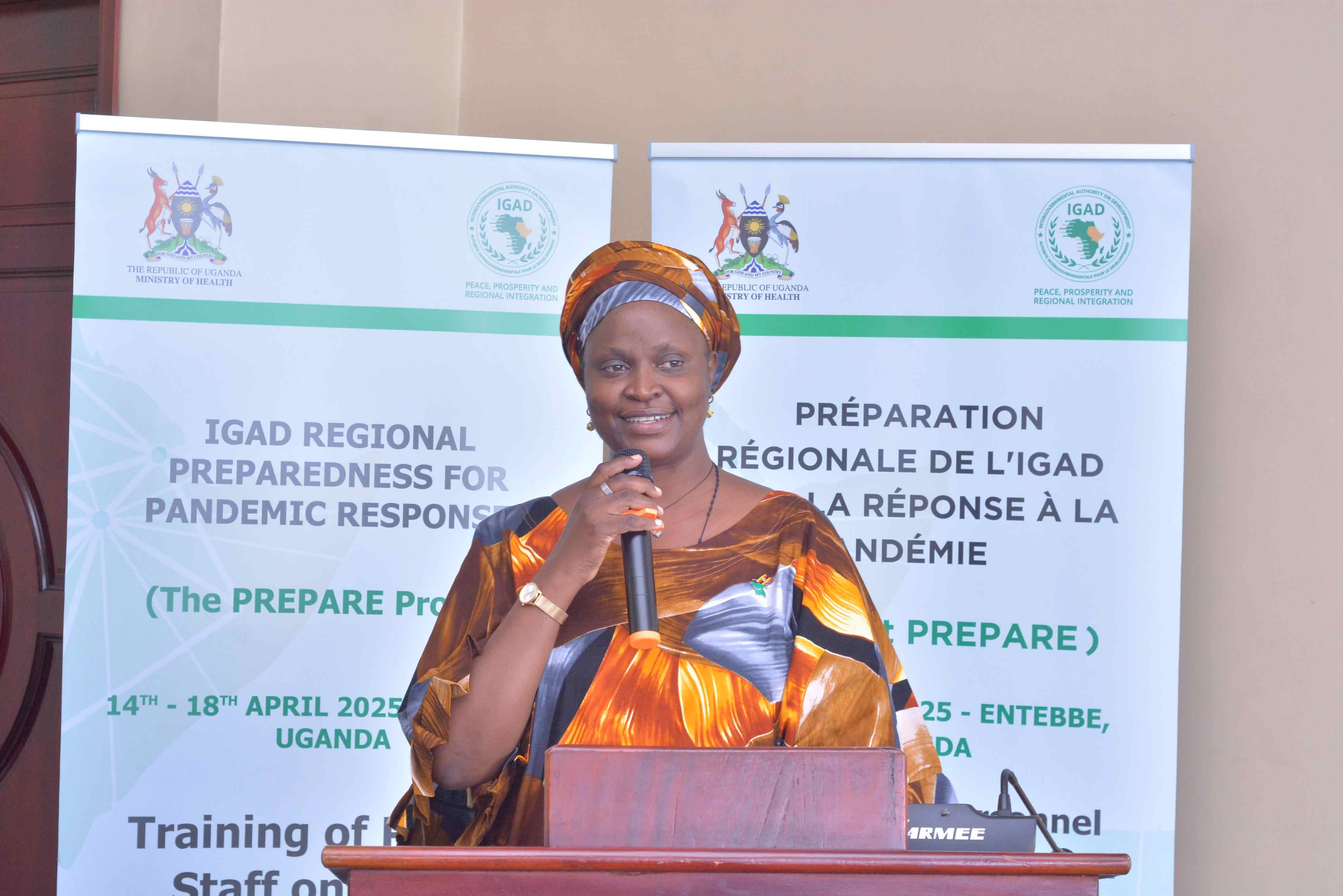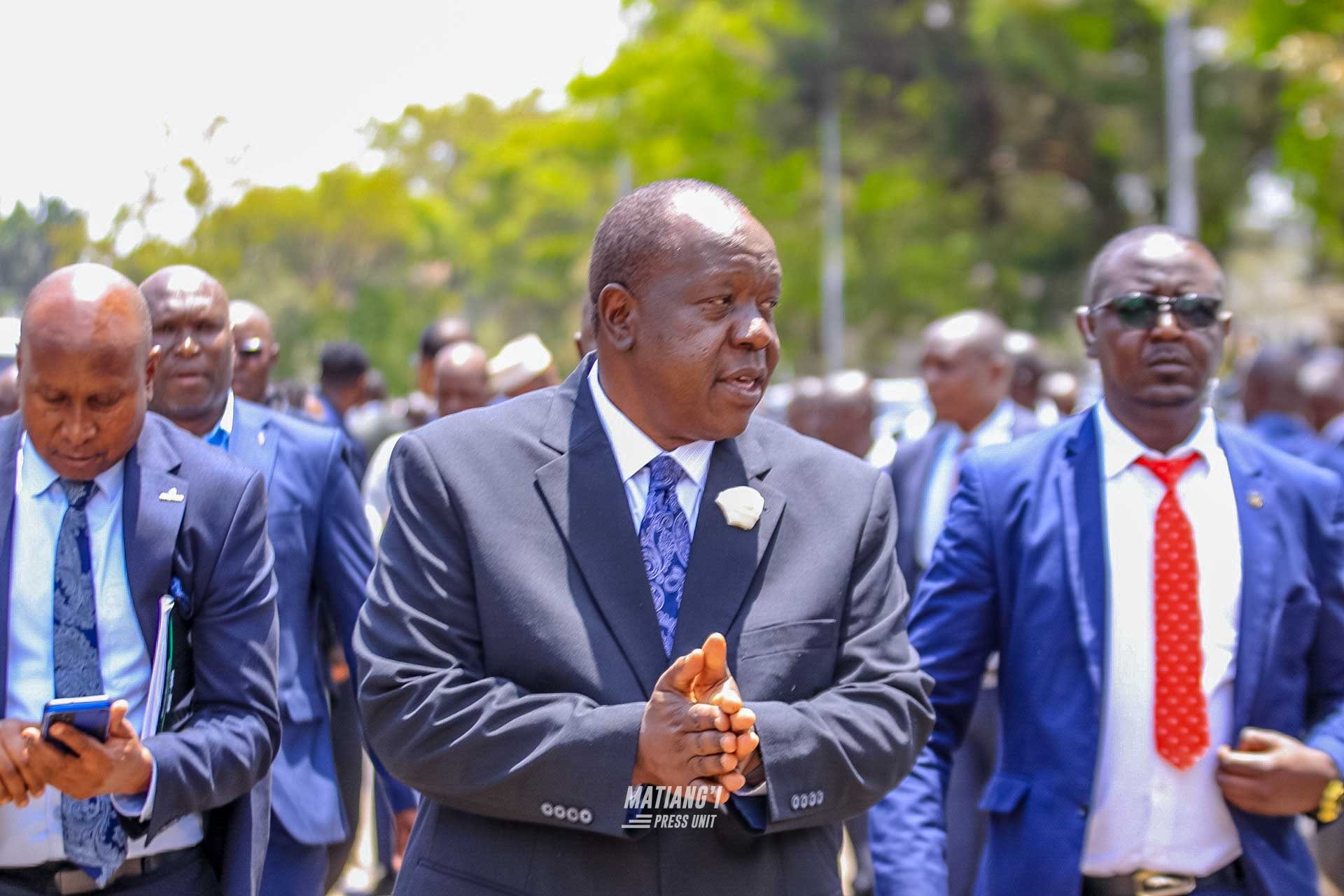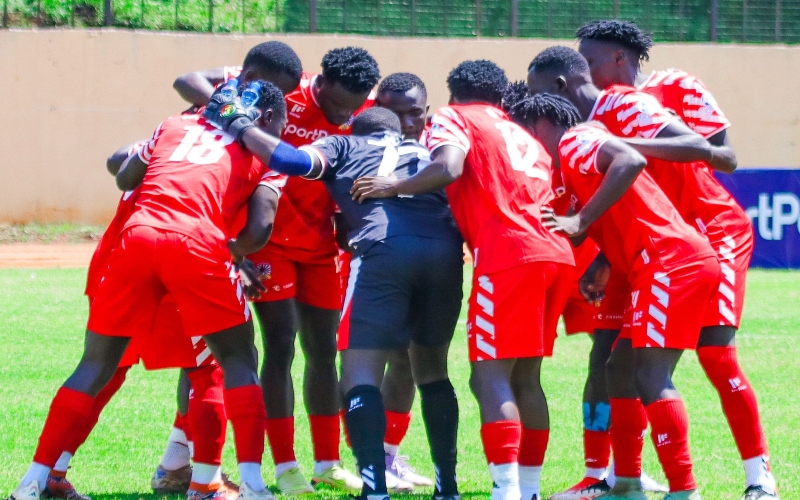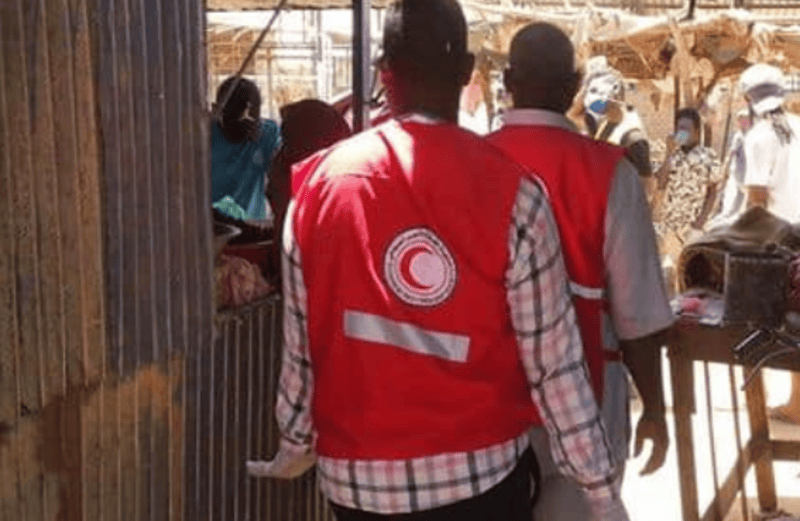IGAD launches regional training to strengthen public health emergency response

The program is designed to provide participants with practical tools and strategies to improve preparedness, response, and recovery during outbreaks.
The Intergovernmental Authority on Development (IGAD) has launched a regional training aimed at enhancing the operational readiness of Public Health Emergency Operations Centers (PHEOCs) across East Africa.
This initiative, which took place this week, is part of the IGAD Regional Preparedness for Pandemic Response (PREPARE) Project and was organized in collaboration with the Ministries of Health, Environment, and Livestock of the Member States.
More To Read
- IGAD demands action to protect civilians as Sudan conflict escalates
- East Africa to simplify cross-border travel and work through IGAD single visa initiative
- IGAD states pledge to protect migrants from trafficking and exploitation
- Garissa Governor Nathif Jama sounds alarm over Dadaab crisis at IGAD conference
- IGAD Chief urges action over irregular migration, joblessness in Horn of Africa
- IGAD proposes single digital visa to boost regional trade, travel
The training brought together senior technical officers from IGAD’s seven Member States and focused on strengthening the capacity of national PHEOCs to respond effectively to public health emergencies.
The five-day training, which is being supported by The Pandemic Fund and implemented by the World Health Organisation (WHO), has brought together more than 60 senior technical officers from IGAD’s seven Member States.
Experts from regional organisations, including the Africa CDC, AFENET, and FELTP Uganda, are also participating.
The program is designed to provide participants with practical tools and strategies to improve preparedness, response, and recovery during outbreaks.
A key component of the training was a tabletop simulation exercise, which allowed participants to assess current capabilities and identify areas that need improvement.
The simulation focused on enhancing emergency systems, procedures, and inter-agency coordination, particularly in cross-border health emergencies. The exercise was intended to ensure that the region is better prepared for future public health threats.
Joselyn Bigirwa, IGAD’s Head of Mission to Uganda, who spoke on behalf of the IGAD Executive Secretary, emphasised the importance of regional collaboration in preparing for pandemics.
"Effective responses to pandemics and epidemics are largely dependent on a well-coordinated workforce. Enhancing this capacity remains a critical priority for IGAD as part of its broader mandate to improve life expectancy and the quality of life," she said.
Hanna Mekonnen, Community Health Coordinator for Africa at the International Federation of Red Cross and Red Crescent Societies (IFRC), highlighted the need for coordination between countries, agencies, and communities to build resilient health systems within a One Health framework.
The training also addressed broader health system challenges. Dr. Allan Muruta, Commissioner for Integrated Epidemiology and Public Health Emergency in Uganda’s Ministry of Health, underscored the region’s vulnerability to recurring health crises like Ebola and cholera.
He stressed that the effectiveness of PHEOCs in managing these emergencies depends on the technical expertise of those in charge.
“This training is timely and essential. The effectiveness of our national PHEOCs is directly linked to the technical expertise and leadership of those present here,” said Dr. Muruta.
Ambassador Phillip Rukikaire, Head of the Department of Regional Peace and Security at Uganda’s Ministry of Foreign Affairs, reiterated Uganda’s commitment to regional health security.
“We will continue supporting IGAD’s initiatives, not just in health, but also in peace, security, agriculture, and environmental protection,” he affirmed.
IGAD described the initiative as a significant step towards achieving its long-term goal of building integrated, cross-border health systems that are aligned with the One Health approach, aiming to ensure sustainable and inclusive pandemic resilience.
Top Stories Today











































